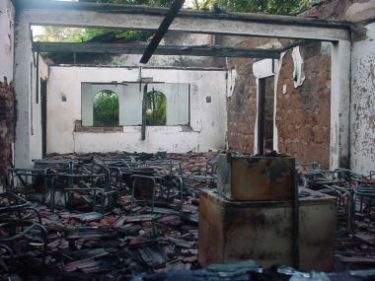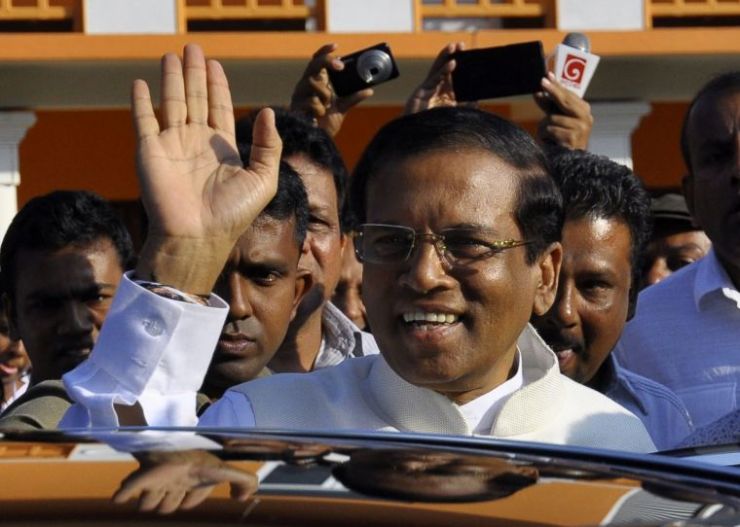Sri Lanka has a turbulent history. From multiple invasions and colonial rule to growing nationalism and ethnic conflict, the small island nation has seen it all.

The country's '30 year war' saw violence between the majority Sinhalese ethnic group and the minority Tamil Tiger rebels. However, after the Tamil's final defeat in 2009, Christians are the new target.
Miriam* is a religious liberties lawyer in Sri Lanka who works to defend the Church against increasing levels of persecution. She spoke to Christian Today about her work and the struggles Christians face.
"We thought we were going to see a change for the better after a new government came in in 2015," she said. The previous administration was heavily influenced by Buddhist extremism and Christians were regularly subject to very violent attacks. The arrival of new president Maithripala Sirisena bought hope to embattled Christians.
However, in just over a year since Sirisena was elected, more than 120 incidents against Christians have been documented by Miriam's organisation. Indeed, the number of attacks on Christians has risen. In 2012, under the previous government, 52 incidents were recorded. In 2013 that figure had almost doubled to 103 incidents. Now at more than 120, the outlook is ominous for Sri Lanka's Christians.
"With the new government we have seen Buddhist extremists take a back seat and adopt a more strategic approach," Miriam said.
"The kind of persecution Christians now face is in the form of legal restrictions. On top of this there has been an increase in persecution carried out by local government officials.
"In many way this is more worrying because these are people with authority."
Churches and prayer groups have been forced to close, Christian burials have been prevented and a number of violent attacks have been carried out against members of the faith.
Miriam explained that one of the major ways government officials have justified their actions was through a "circular" which required all new religious buildings to be registered. However this edict has no legal basis or support from parliamentary law, she said. It is used not only on new buildings but on places where Christians have met for many years. Introduced under the last government, the circular is used as an excuse to directly target Christians.
Although Sri Lanka has other minority religious groups, the seven per cent of the population who are Christian bear the brunt of the persecution. This is because Christianity is seen as a colonial religion for Westerners, said Miriam. The Sri Lankan government has effectively created a national identity around Buddhist philosophy. To be Sri Lankan is to be Buddhist. As a result, Buddhist monks are given positions of power in government and often actually lead attacks on Christians, seen as the last vestiges of colonialism.

Buddhism, a religion that centres around meditation and inner peace, is often seen as an unlikely candidate for aggression. But Miriam says the attitude in Sri Lanka is very different.
"There is a lot of tension because of the prominence given to monks and because of this attitude towards Christianity as a colonial religion," she said.
"Even if the philosophy is peaceful, in Sri Lanka it is very aggressive."
As well as the link to Western rule, Christians are also treated with suspicion because of their perceived desire to proselytise. "Even if they aren't sharing their faith, there is this perception," Miriam said. "There have been a number of cases where Christians have been falsely accused of unethical or forced conversions."
Persecution charity Release International supports Miriam and her organisation. Together they fear the upward trend in persecution against Christians could become worse. Militant Buddhists have for years pushed for anti-conversion laws and a ban on missionary groups. Indeed in the past there have been attempts by the Sri Lankan parliament to pass anti-conversion laws, which many Christians fear could be abused to target church activities.
The current ruling party in Sri Lanka have headed a campaign entitled "A Brighter Future for Sri Lanka". The fear is it will be a long time before Christians can say the same.
*false name given to protect identity.




